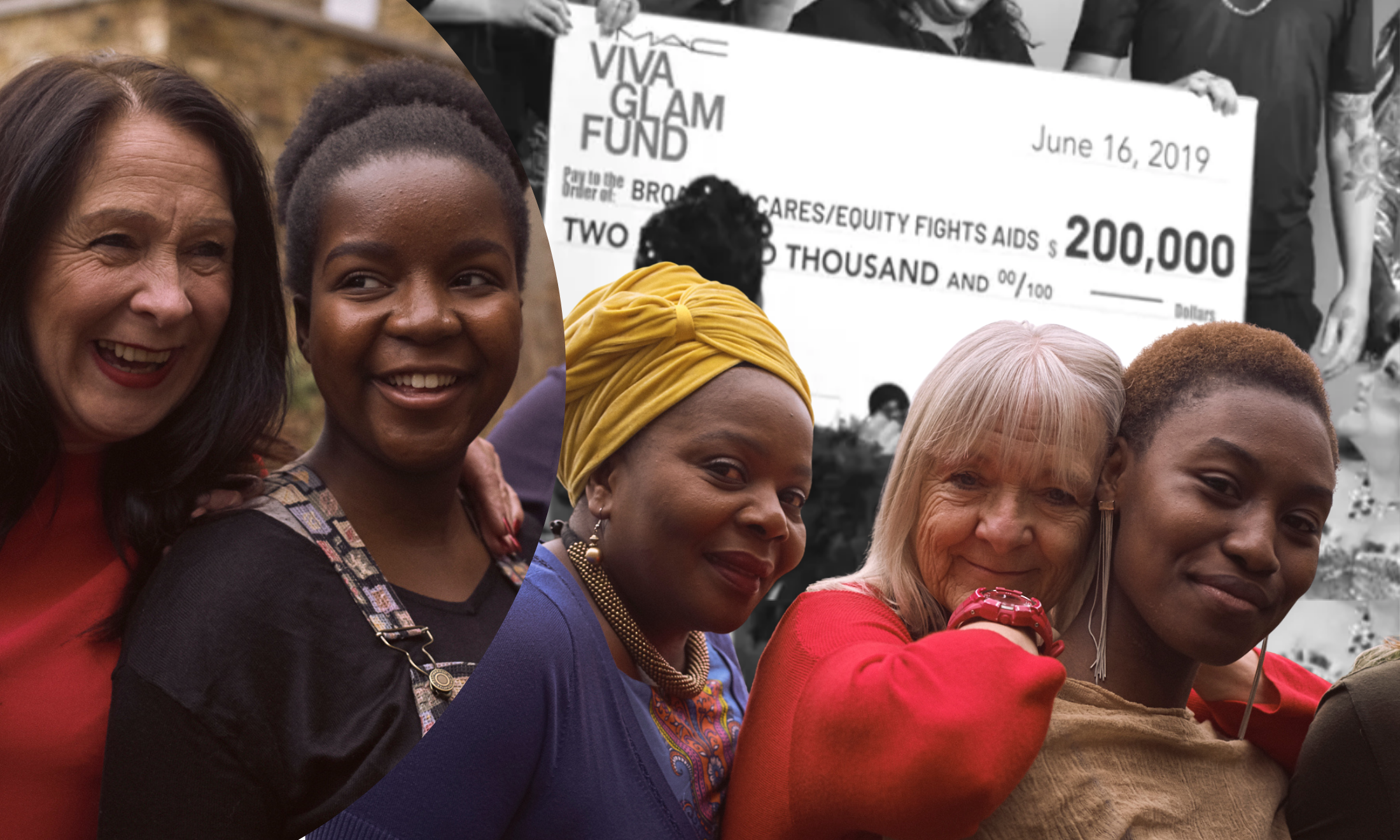
Terrance Higgins Trust and M.A.C
The organisations breaking stigmas around HIV/AIDS
M·A·C’s VIVA GLAM lip products have raised over $500m for organisations supporting those living with HIV/AIDS and have helped charities like Terrence Higgins Trust.
Mishti Ali
19 Nov 2021
In 1981, when the first death attributed to AIDS in the UK was made public, the source of the anonymous patient’s fatal pneumonia was a medical mystery, categorised only as part of a ‘gay syndrome’ that seemed to only be striking the homosexual community (an assumption that would prove later to be entirely false). It was the start of a pandemic that would affect generations to come.
Forty years on, we know that the many potentially life-threatening illnesses referred to collectively as AIDS are a consequence of HIV, a virus that weakens the immune system.
Today, the Terrence Higgins Trust (THT) is at the forefront of fighting against HIV in the UK, as well as fighting for better sexual health. The work done by those at THT has led to them becoming the largest provider of sexual health services in the country.
Chamut Kifetew, who works at THT, notes that significant progress has been made in their fight. “HIV is not what it was when it first emerged,” she says. “People can now lead long, normal, healthy lives without it hanging over them.”
For example, the UK has met the UN’s 90-90-90 goals for battling AIDS, set out in 2015. This means that, by 2020, 90% of all people in the UK living with HIV knew their HIV status, 90% of all people with diagnosed HIV infection received sustained antiretroviral therapy, and 90% of all people receiving antiretroviral therapy had viral suppression.
“People can now lead long, normal, healthy lives without it hanging over them”
Chamut Kifetew
A large part of this progress is due to the introduction of antiretroviral treatment. When taken as prescribed, the treatment brings the viral load in HIV-positive people’s blood down to undetectable levels, meaning that they are unable to transmit it to others. The messaging around this has revolved around a simple message: U=U, or undetectable equals untransmittable.
Another vital development in the fight against HIV is the introduction of PrEP, or pre-exposure prophylaxis. PrEP is a drug taken before and after sex that greatly reduces the risk of getting HIV. As long as it’s taken as it should be, PrEP offers almost 100% protection from HIV.
“At the same time,” notes Chamut, “one of the things that has really persisted is the stigma associated [with HIV]. Especially among the general population, people have outdated notions and are not aware of how far medication has come, or how technology and testing [have progressed].”
It’s why World AIDS Day continues to be key. Despite the illness only being identified in 1984, more than 35 million people have died from AIDS or related illness, rendering it one of the most destructive pandemics in history.
Despite the wide-reaching work done by the Trust, Chamut is keen to emphasise how small the body of people working for it truly is.
M·A·C Cosmetics’ charitable campaign, VIVA GLAM, all started off with a lipstick and the intent to make a difference in the fight against HIV/AIDS. Giving 100% of profits to organisations like THT, they have raised over $500m since the campaign’s conception in 1994, also funding healthy futures and equal rights for women, girls and the LGBTQ+ community.
The relationship between THT and M·A·C has existed for over a decade now. Chamut points out that without their help, organisations would be unable to spearhead pivotal points in their fight against HIV, such as their Positive Voices campaign. The campaign puts HIV-positive people and their stories at the forefront, ensuring that people know a life with HIV is possible.
“Positive Voices are so powerful because they are seeking to change that mindset about what living with HIV means,” insists Chamut. “It’s about breaking that stigma and that discrimination by giving people a chance to put a human face [on it]. We try to get people to understand that so that they can change their attitudes.”
Unfortunately, this progress is not universal.
To date, the conversations around HIV and AIDS have prioritised the experiences of same gender-attracted men, and not without cause. Forty years ago, when the AIDS crisis first hit the UK, mainstream media seized the opportunity to further demonise gay and bisexual men, going so far as to refer to the illness as a ‘gay plague’. Homophobia played, and continues to play, a major role in the taboo around both HIV and AIDS, and was pivotal in the reluctance to treat and investigate both.
“We need to have that broad awareness of the testing [for HIV], of PrEP, and how HIV has changed. That’s where”
Chamut Kifetew
Today, however, Black African heterosexuals are one of the groups most affected by HIV in the UK, and Black African women are the largest group amongst women, irrespective of their sexuality. Conversations around both HIV and AIDS have historically overlooked racial minorities, with those living at the intersections of such identities often having their stories ignored.
“What happens a lot with people who migrate [from the Global South] is that they come in with their experiences from wherever they have come from, where they did not have the access to treatment, or there is a lot of social stigma and it’s taboo to talk about HIV,” Chamut explains. “They assume that HIV is not an issue here.”
“[Positive Voices] is a great initiative that follows people from racially minoritised communities affected by HIV, as well as other communities, to actually tell their own stories, and use that to shape the discourse,” says Chamut.
When Chamut speaks of her hopes for the future of the fight against HIV, she laughs, before hesitating.
“Yeah, I think that’s where the future is,” she says. “We need to have that broad awareness of the testing [for HIV], of PrEP, and how HIV has changed. That’s where we need to go now: beyond that stigma.”
This article was amended on 3 December to state that PrEP is a HIV prevention drug that reduces the risk of getting HIV. An earlier version mistakenly said that PrEP is taken to bring the viral load in HIV positive people’s blood down to undetectable levels.








